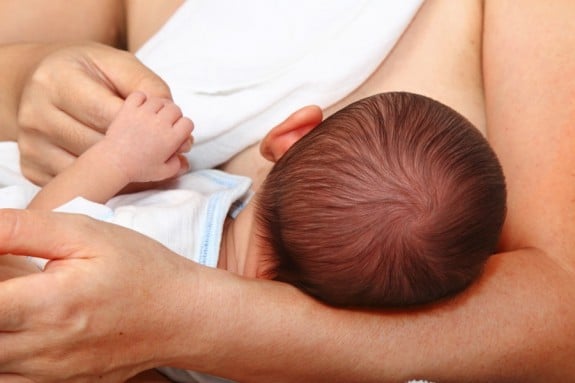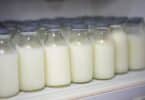We all know that pollution is bad for us, but when you live in a big city, there isn’t much you can do about. But, according to researchers, there IS something you can do for your baby to help protect them . . . breastfeed!
PM2.5 particles measure smaller than 2.5 micra. That’s four times thinner than a single hair. Suspended in the air, they are so small and so light that they can penetrate and spread through the body with ease. Their composition depends on emissions sources in the area. In the INMA Gipuzkoa area from the study, these neurotoxic particle matters are composed of lead, arsenic, and manganese from nearby industrial activity in traffic. This differs from urban areas where the main source of pollution is traffic. However, adverse effects can result from any form of pollution.
Conducted by the UPV/EHU researcher, Aitana Lertxundi, the harmful effects of PM2.5 pollution particle matter and nitrogen dioxide (NO2) from the study area disappeared in babies that were breast-fed during the first four months of life. This suggests that breast-feeding may provide protective benefits against these two atmospheric pollutants, which could have long-term effects on everything from motor to mental development.
Monitoring for the study started in 2006 when the mothers were pregnant, and it still continues today on the children that are now 8-years-old. A total of 638 samples were taken, and the babies were monitored and analyzed until they reached 15 months of age.
“In the fetal phase, the central nervous system is being formed and lacks sufficient detoxification mechanisms to eliminate toxins that build up,” Lertxundi told Science Daily.
In fact, results from the study suggest an inverse relationship between exposure to pollution particle matter and motor development of babies all the way up to 15 months, and they found the effects to be sustained over time. So, even if “these entices display and alteration with respect to the average and, even if they are not worrying, there is significant in that they reveal the relationship existing between air quality and motor development.”
However, data analysis showed that neither the PM2.5 particle matter nor the NO2 had a harmful effect on babies or breast-fed for at least four months. It would make sense that this same benefit could transfer to other forms of pollution within other urban settings.
Related Articles:
- Delayed Umbilical Cord Clamping Linked To Improved Fine-Motor, Social Domains in 4-Year-Olds
- Modern Dads Do Diapers, but Not Baby Talk, and It’s Not a Bad Thing, Experts Say
- Use of Antibiotics in Infancy May Disrupt Gut Microbes and Cause Illness Late in Life







